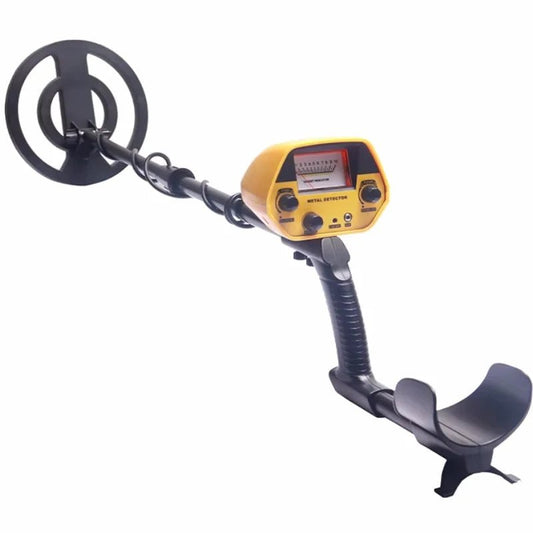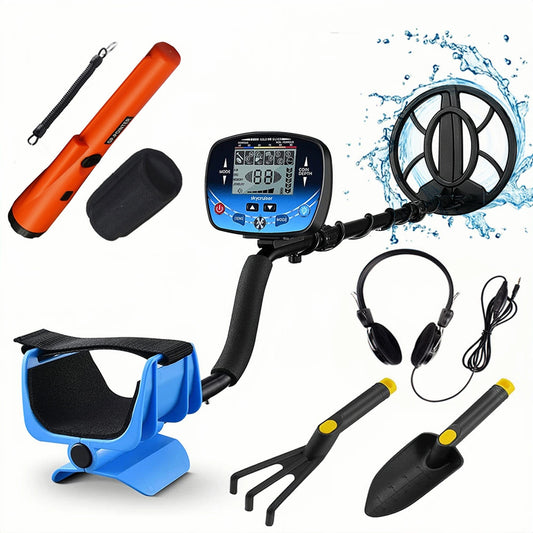
Metal Detecting in Jamaica: Beaches, Pirate History, and Tourist Finds
Share
Jamaica’s sun-soaked beaches and legendary pirate history make it a dream destination for treasure hunters. From the infamous Port Royal to the bustling shores of Montego Bay, the island’s sands may hold everything from lost tourist jewelry to relics from the Golden Age of Piracy.
However, before you pack your detector, it’s crucial to understand Jamaica’s strict import and usage laws for metal detectors. This guide covers everything you need to know about metal detecting in Jamaica, including legal requirements, pirate lore, and the best beaches for modern finds.
Is Metal Detecting Legal in Jamaica?

Metal detecting in Jamaica is strictly regulated. According to the Ministry of National Security, metal detectors are classified as restricted items. This means:
-
Importation: You must apply for and receive authorization from the Ministry of National Security before bringing a metal detector into Jamaica. Importing one without prior approval may result in confiscation at customs.
-
Application Process: The application form must be completed and submitted with supporting documents. Processing takes about ten working days.
-
Usage: Even with import approval, use of a metal detector may be restricted to specific locations or purposes. Always check with local authorities or resort management before detecting on beaches.
-
Enforcement: Hobbyist reports suggest that while some tourists have detected on resort beaches without issue, others have had detectors confiscated or been asked to stop by authorities.
Best Practice: Always secure written permission before bringing or using a metal detector in Jamaica, and confirm with your hotel or resort if beach detecting is allowed.
Jamaica’s Pirate Legacy: Port Royal and Beyond

Jamaica’s history is steeped in pirate lore. During the 17th and early 18th centuries, the island was a central hub for pirates, privateers, and buccaneers. Port Royal, located near modern-day Kingston, was known as the “wickedest city on Earth” and served as the main base for notorious pirates like Henry Morgan and Blackbeard.
Port Royal: The Pirate Capital
Port Royal’s strategic location made it a haven for pirates and privateers raiding Spanish ships. The city was infamous for its wealth, debauchery, and lawlessness until a devastating earthquake in 1692 submerged much of it into the sea. Today, Port Royal is an archaeological site and a reminder of Jamaica’s wild pirate past.
Blackbeard and Henry Morgan
Edward Thache, better known as Blackbeard, is believed to have lived and operated out of Jamaica before gaining infamy along the American coast. Henry Morgan, another legendary figure, was knighted and later became Lieutenant Governor of Jamaica after years of privateering.

Best Beaches for Metal Detecting in Jamaica

While Jamaica’s beaches are world-famous, legal restrictions mean you must be cautious about where and how you detect.
Montego Bay
A top tourist destination, Montego Bay’s beaches see heavy foot traffic, making them prime spots for lost coins, jewelry, and watches. If your resort allows it and you have the proper permits, early mornings after busy weekends are best for detecting.
Negril
Known for its Seven Mile Beach, Negril is a favorite for both relaxation and treasure hunting. Always check with your hotel or local authorities before detecting.
Ocho Rios
Popular with cruise passengers and tourists, Ocho Rios’s beaches can yield modern finds. Resorts here may have their own policies—ask before searching.
Port Royal
While Port Royal’s pirate history is legendary, the area is now a protected archaeological site. Metal detecting is strictly prohibited here, but it’s worth a visit for any pirate enthusiast.
What Can You Find?

With permission, metal detecting on Jamaica’s beaches can yield:
-
Modern coins (Jamaican dollars, US dollars, foreign currency)
-
Jewelry (rings, bracelets, necklaces) lost by tourists
-
Watches, sunglasses, and small electronics
-
Rarely, relics or tokens from the colonial or pirate era
Any item of historical or archaeological significance must be reported to authorities and may not be kept or exported.
Safety and Responsible Detecting
-
Stay in Tourist Areas: Stick to resort beaches and well-populated zones for safety.
-
Travel Light: Only bring essential gear and keep valuables secure.
-
Respect Local Laws: Never attempt to detect in protected areas or without proper permits.
-
Be Discreet: Always ask permission and be courteous to locals and other tourists.
-
Fill Your Holes: Leave the beach as you found it and remove any trash you find.
Tips for Success
-
Use a waterproof detector and sand scoop for beach hunting.
-
Detect early in the morning or after storms for the best chance at new finds.
-
Focus on high-traffic areas: entrances, lifeguard stands, and popular swimming spots.
-
Join online forums or local clubs for up-to-date advice and recent finds.
Conclusion
Jamaica’s beaches, pirate history, and vibrant culture make it a fascinating destination for metal detecting—if you follow the rules. With strict import laws and usage restrictions, always secure permission before bringing or using a detector. Focus on tourist beaches with resort approval, and enjoy the thrill of searching for lost treasures in the land of Blackbeard and Henry Morgan. Hunt responsibly, respect local laws, and you may just uncover your own piece of Jamaica’s storied past.




